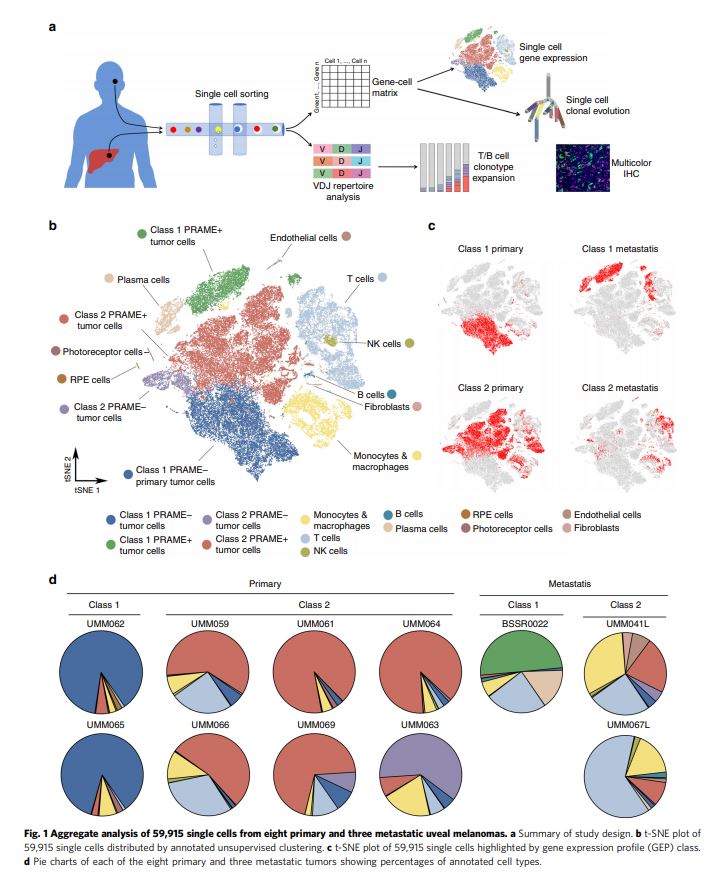
A study analyzing new evolutionary complexity in uveal melanoma by J. William Harbour, M.D., associate director for basic science at Sylvester, professor of ophthalmology, and vice chair and director of ocular oncology at Bascom Palmer Eye Institute, was published January 24 in Nature Communications.
“This is the first-ever single-cell analysis of uveal melanoma,” said Dr. Harbour, holder of the Mark J. Daily Endowed Chair in Ophthalmology. “We discovered previously unrecognized genetic and cellular complexity in this deadly eye cancer.”
A key finding was an enrichment of T cells expressing the checkpoint molecule LAG3, rather than the more familiar PD1 and CTLA4 molecules, which have been the focus of most checkpoint inhibitor therapy to date. This may explain why uveal melanoma has responded poorly to such drugs and nominates LAG3 as a new target for immunotherapy in uveal melanoma.
Uveal melanoma is the most common primary cancer of the eye, with 2,000 to 3,000 cases diagnosed each year in the United States. Uveal melanoma is highly metastatic and unresponsive to checkpoint immunotherapy.
Dr. Harbour’s ocular oncology laboratory focuses on the use of genetic and genomic methods, computational and bioinformatic technologies, and genetically engineered cellular and animal models to better understand and treat major forms of eye cancer, including uveal melanoma, retinoblastoma and lymphoma.
This work was supported by National Cancer Institute grant R01 CA125970, Research to Prevent Blindness, Inc. Senior Scientific Investigator Award, the University of Miami Miller School of Medicine Medical Scientist Training Program, the University of Miami Sheila and David Fuente Graduate Program in Cancer Biology, the Center for Computational Science Fellowship, the Melanoma Research Foundation Senior Investigator award, and a generous gift from Dr. Mark J. Daily. Bascom Palmer Eye Institute received funding from NIH Core Grant P30EY014801 and a Research to Prevent Blindness Unrestricted Grant. Sylvester also received funding from the National Cancer Institute Core Support Grant P30CA240139.
